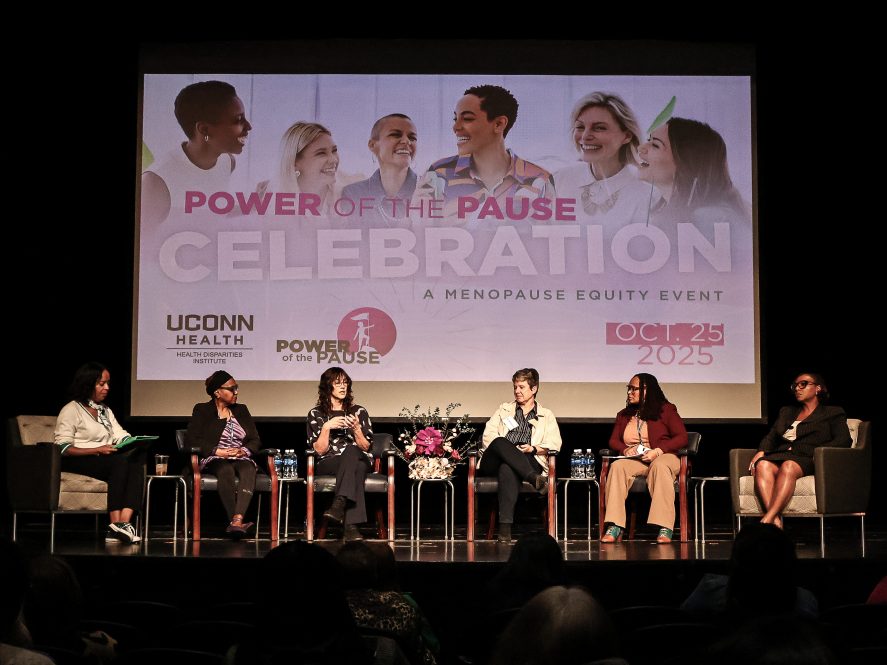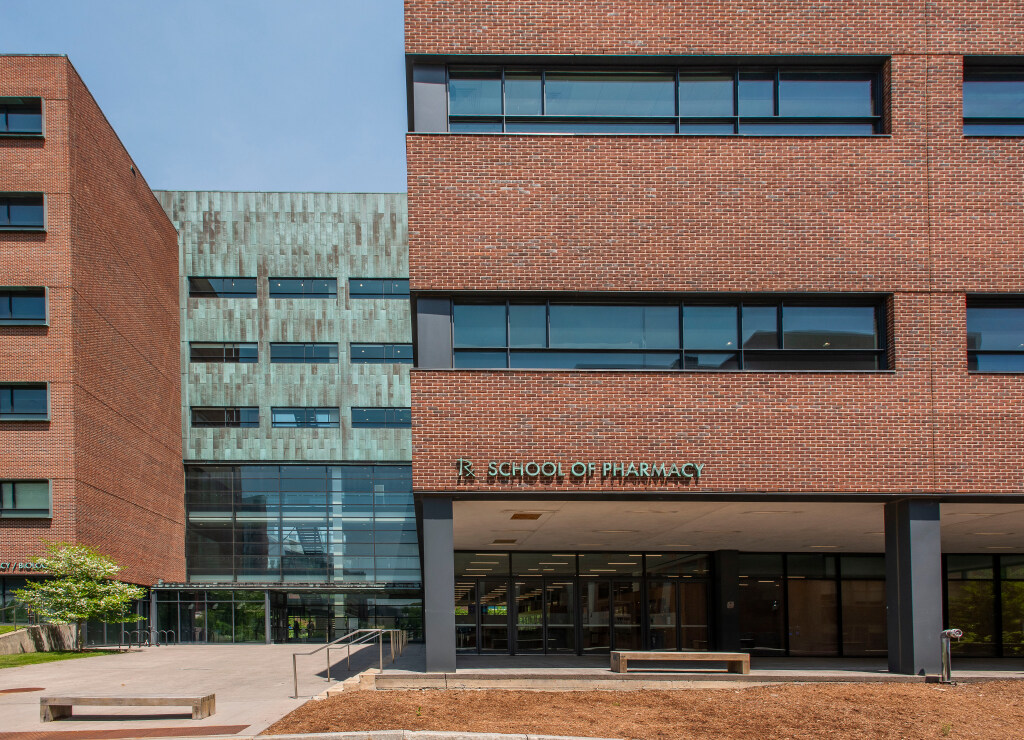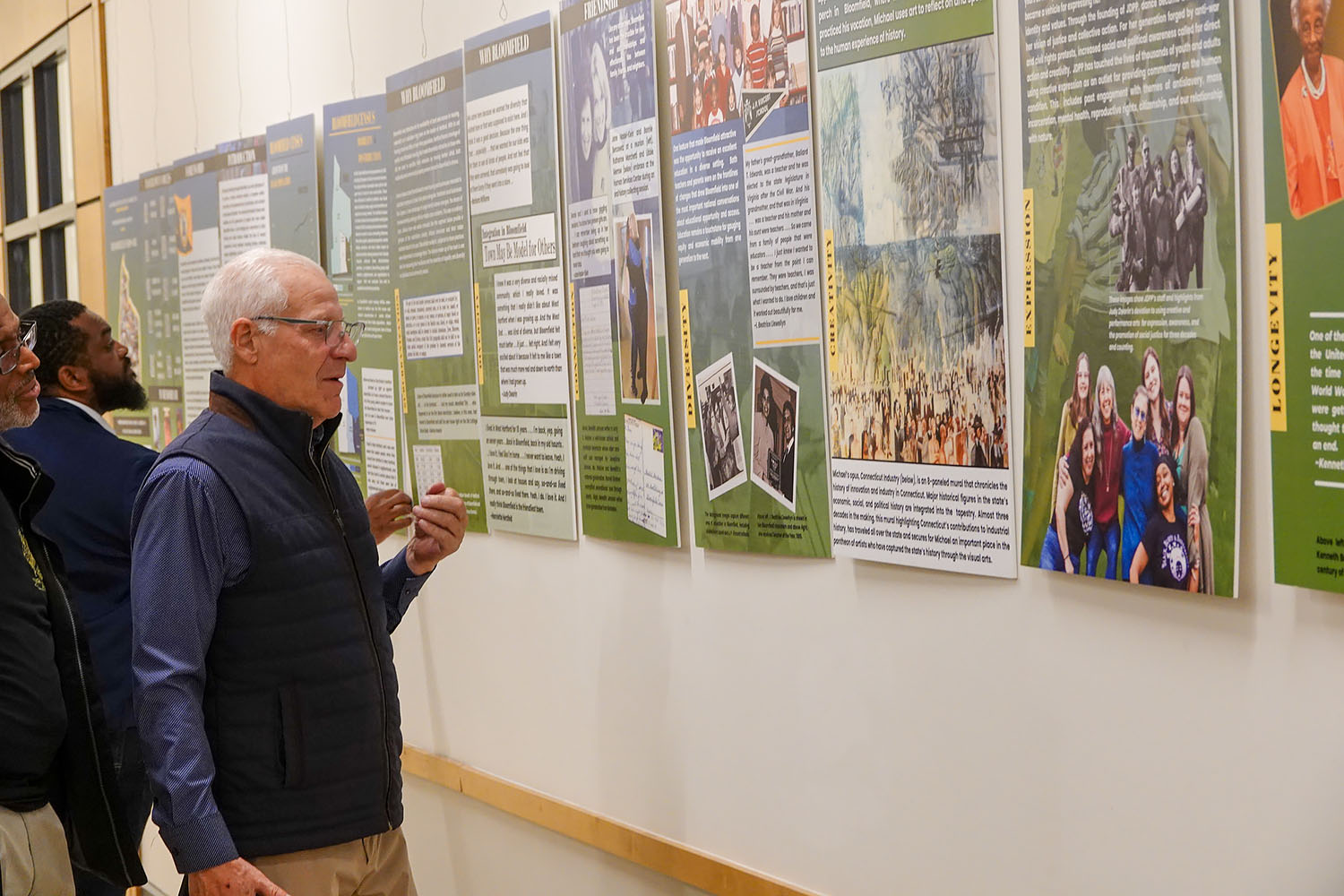Hundreds from across Connecticut gathered on October 25 at the Mandell JCC in West Hartford for the Power of the Pause (PoP) Celebration.

This free community event focused on menopause equity, midlife health education, and shared joy. Organized by the UConn Health Disparities Institute (HDI) as part of its Menopause Equity Initiative, the event encouraged open conversations about menopause as a public health and equity issue, moving away from silence and isolation, and creating space to feel seen and celebrated.
The PoP Celebration, co-designed by UConn HDI and the Menopause Equity Collective (MEC), a statewide network of community members, researchers, clinicians, advocates, and policy leaders, aims to advance menopause and midlife health as an equity focus in Connecticut. The MEC represents women and individuals of color, spanning intergenerational and intersectional identities, who are committed to addressing the real needs of Connecticut’s women and individuals born with ovaries, especially those from communities historically excluded from healthcare systems, including women of color, LGBTQIA+ people, and those with disabilities. The goal: provide access, dignity, and a sense of celebration for all navigating menopause and midlife.
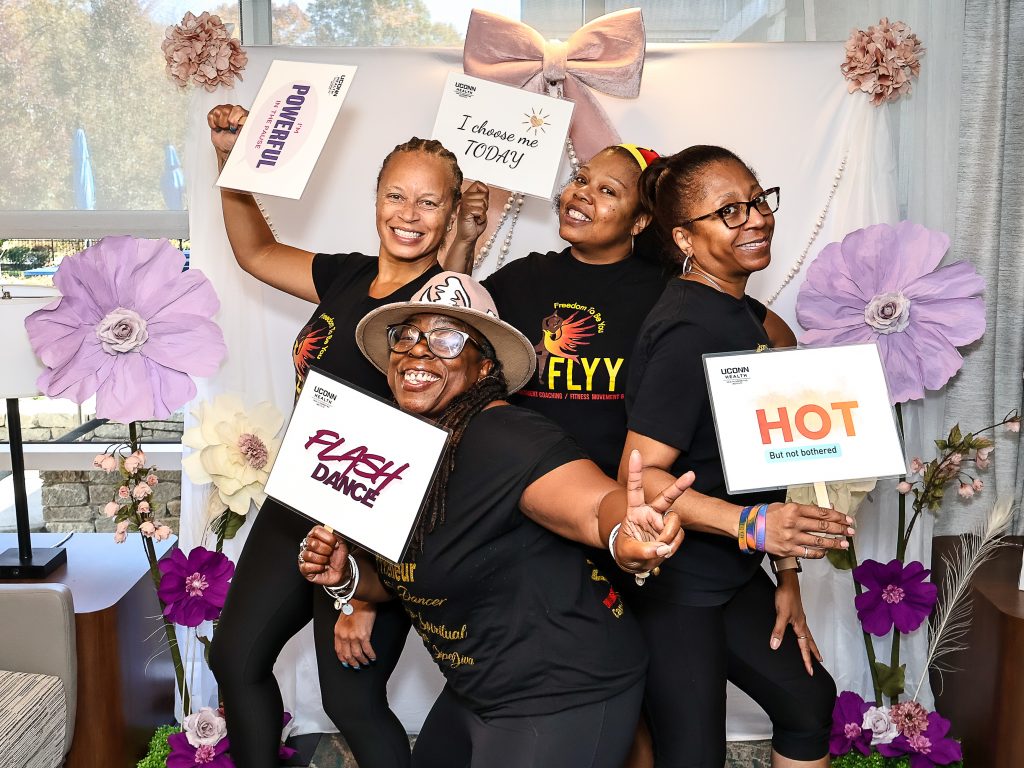
“This was never just a community health fair,” said Trisha Pitter, director of Community Learning and Engagement at UConn HDI. “We wanted people to say ‘menopause’ out loud and proud, get answers from onsite health providers, access resources they might not otherwise have, and most importantly, feel affirmed and not dismissed.”
Dr. Linda Barry, associate director of UConn HDI, added, “HDI did something special today from my conversations with attendees this was more than a health education event. Real conversations occurred, the PoP celebration affirmed women at a key transition point in their lives, which often is overlooked by the medical community and society. Attendees felt valued, heard, and seen.”
Among the nearly 300 attendees was the dean of UConn School of Medicine, Dr. Bruce T. Liang, an internationally recognized cardiovascular physician-scientist. Liang, attending the event with his wife, elevated the importance of women’s midlife health.
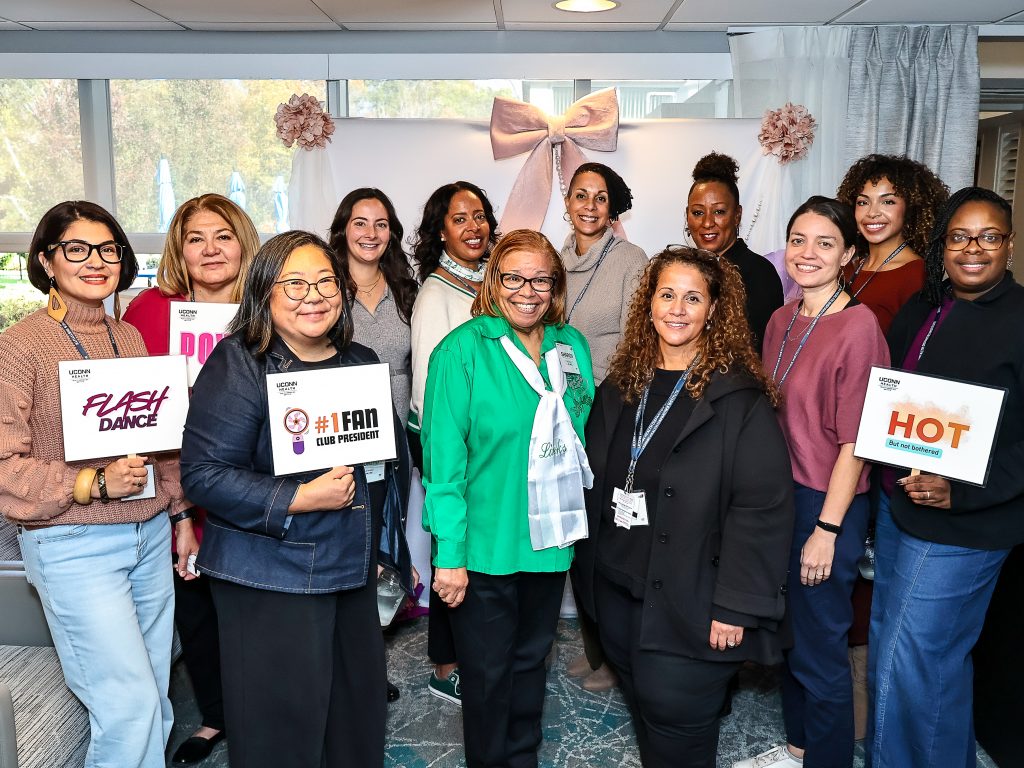
“Menopause is a critical time for women when it comes to cardiovascular health. Health education, care coordination and strong provider relationships are key during this transition. I was thrilled to see HDI was able to engage so many units from across the UConn and UConn Health communities, including top notch providers, like Dr. Lenora Williams as well as students to take part in the celebration. Working collaboratively and centering community priorities is the only way we can ensure our health system is responsive,” said Liang.
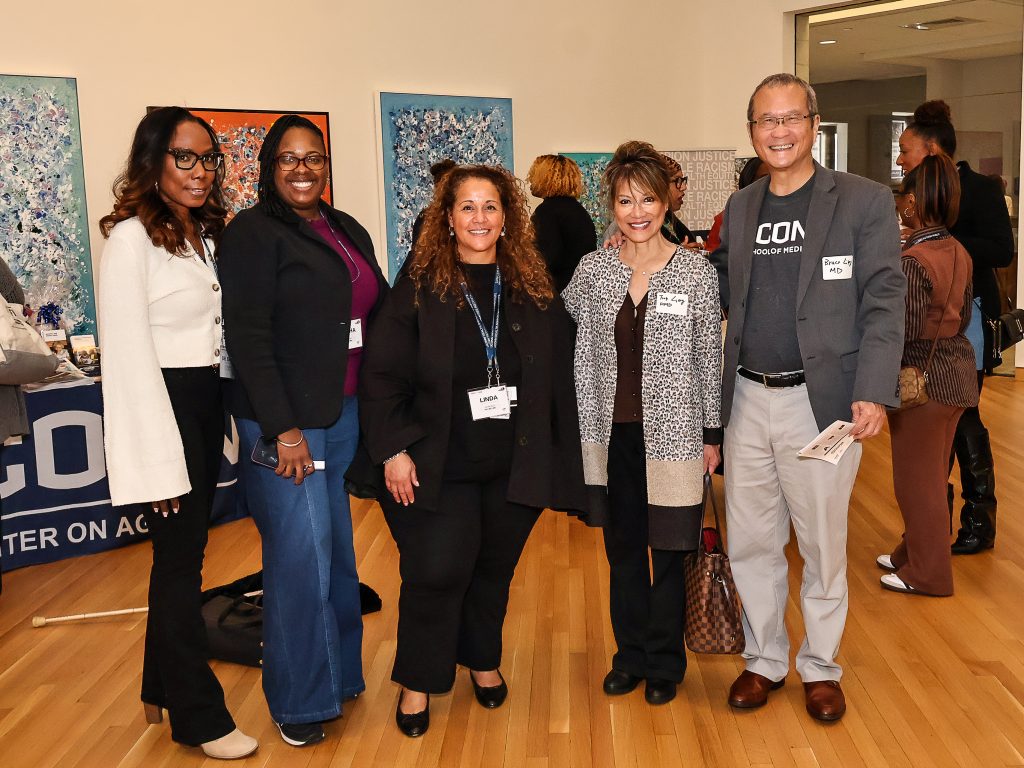
From Meno Mocktails to Movement: What the Day Looked Like
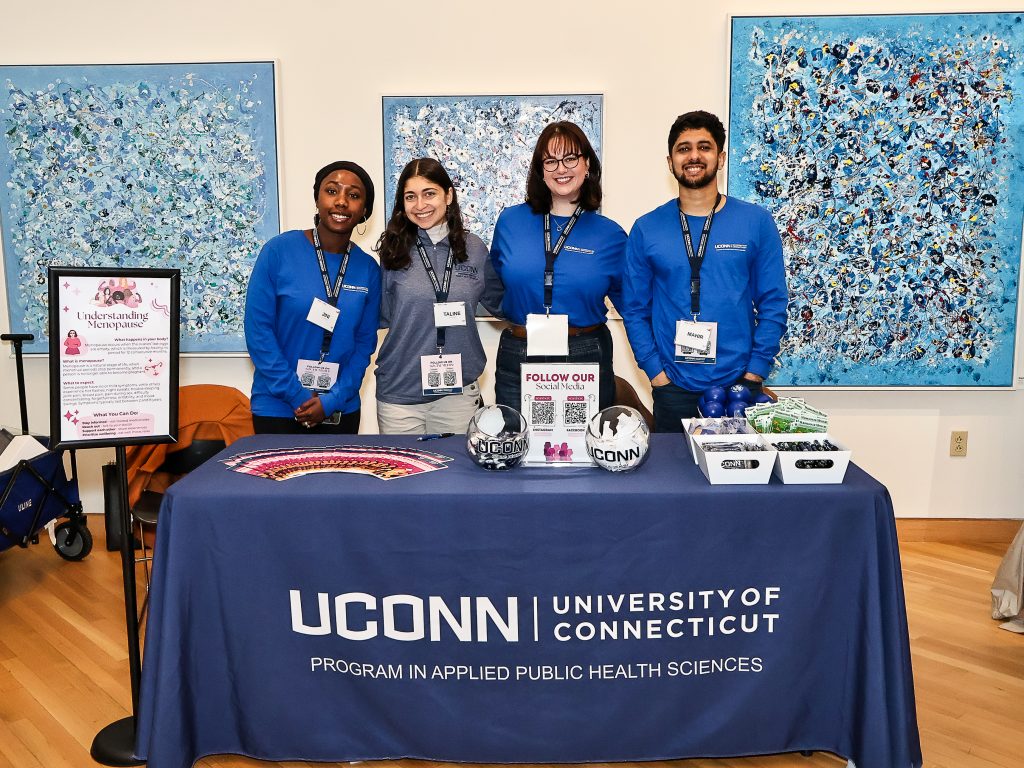
Guests arrived to music from award-winning DJ Q-Boogie, founder of the Female DJ Association, along with “Meno Mocktails,” photo walls, resource tables, and vendors. The energy felt more like a reunion. People mingled, took selfies, swapped stories, danced, hugged, and laughed. The lounge-style welcome made it clear from the start that this was a celebration of midlife.
From there, the crowd moved together, literally, guided by a dance-and-movement procession led by Sistah Iya Anyangō Yaa Asanewaa, CEO and founder of The FLYY Movement, which brought attendees into the theatre. Through call-and-response, she invited everyone to affirm their power, worthiness, “I’m FLY!” and freedom in their own bodies.
Following the movement procession, a candid panel conversation took place, moderated by Dr. Kyra Dorsey, a member of the MEC and the Farmington Valley (CT) Chapter of The Links, Incorporated.
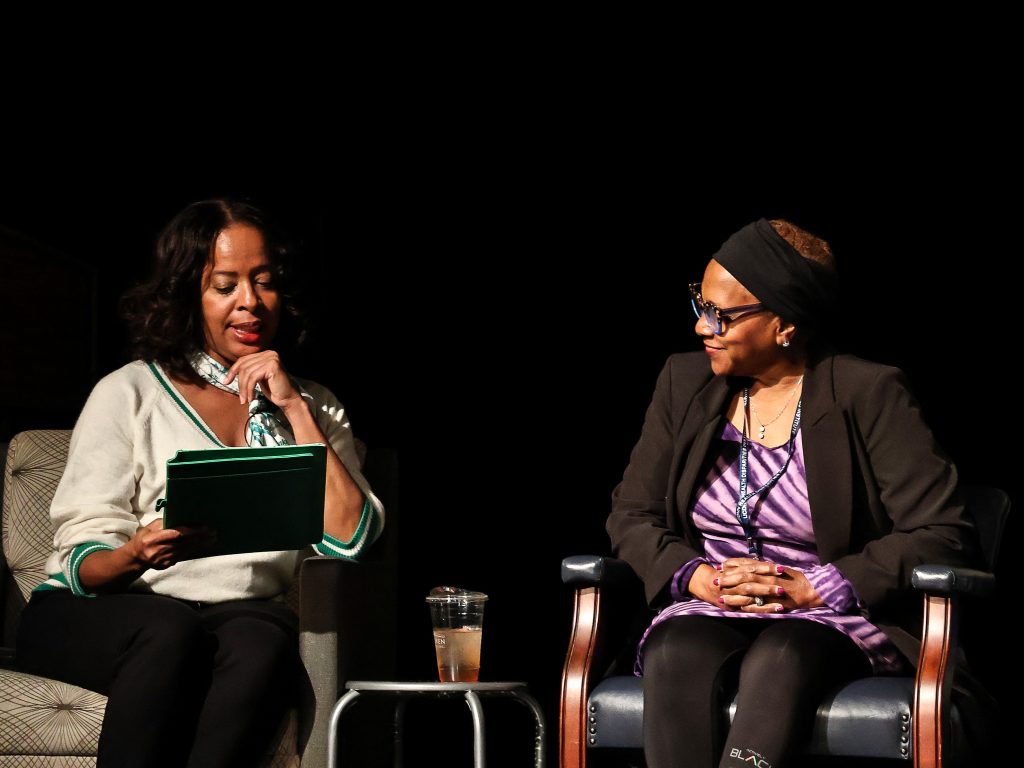
The panel featured:
- Lenora S. Williams, a board-certified OB/GYN and North American Menopause Society Certified Menopause Practitioner with more than 35 years of experience in women’s health.
- Nathalie Bonafé, a biomedical researcher turned women’s health advocate and life transition specialist who supports people through perimenopause, post-menopause, serious illness, grief, and end of life using evidence-based, autonomy-centered care.
- Ginger Nash, a licensed naturopathic physician with over 25 years of practice focused on complex, chronic conditions and holistic approaches to hormonal health.
- Ava M. Hart, LCSW, a licensed clinical social worker and trauma-informed mental health practitioner who specializes in EMDR therapy and culturally responsive, neurobiologically grounded care in midlife.
- Evelyn Manson-Miller, a beauty industry innovator and the founder of XES Beauty Lounge, with more than 35 years of experience in inclusive skincare product development and brand strategy. She bridges dermatology, formulation, and multicultural beauty to help people feel confident in their skin during midlife and beyond.
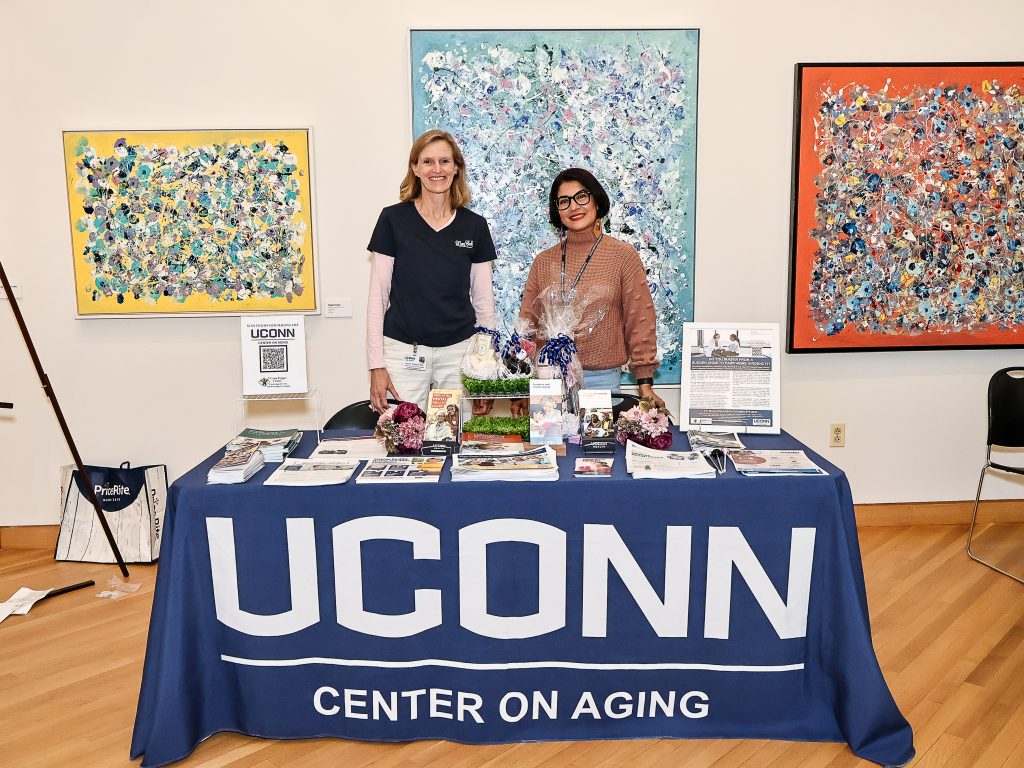
Panelists spoke openly about myths and facts around perimenopause and menopause; sexual health and intimacy; skin and hair changes; hormone therapy and holistic options; trauma and mental health during midlife; and how to find support in your community and in yourself. They also explained how to advocate for yourself in a medical visit, what screenings to ask for in midlife, and how to trust your body if something feels off. The room answered with “mm-hmms,” laughter, and real relief.
Following the panel, State Representative Kai Belton (Middletown, 100th District) delivered special remarks. Belton, who leads on maternal, reproductive, and community health issues at the State Capitol, connected her own perimenopause experience to the need for policy change in Connecticut. She called for stronger provider education, workplace protections, stronger insurance coverage, and public awareness around menopause care and midlife health. “Midlife is not a crisis! We are not broken; we are breaking through!” Belton told the crowd, drawing cheers. She emphasized that menopause should be recognized as a public health and equity priority for the state of Connecticut, not an afterthought.
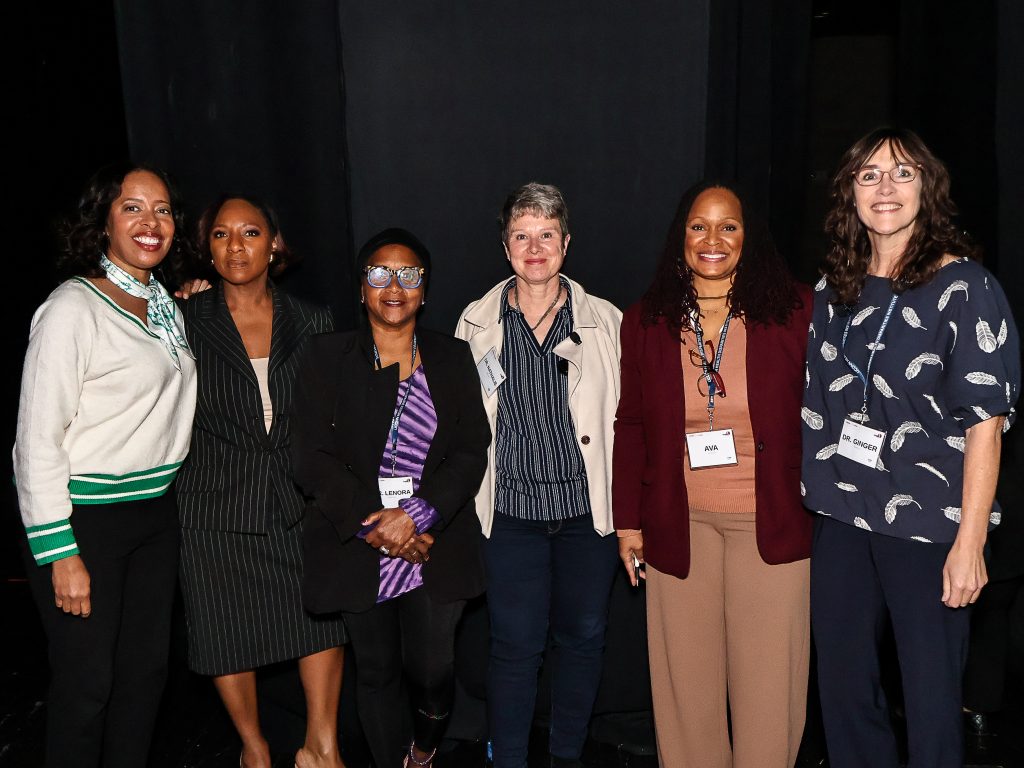
After the panel, guests refueled with light bites and the event’s signature menopause-themed Meno Mocktail, they then explored the Mandell JCC for self-paced wellness experiences: menopause fitness demos and sound bath therapy offered by the Mandell JCC, health screenings supported by UConn Health’s CT AHEC, vibrant resource and vendor marketplace, photos, and dancing!
The celebration closed in community with a joyful group movement session led again by Sistah Iya Anyangō Yaa Asanewaa, inviting attendees to dance, breathe, release, and share one word about how they felt in that moment. The final shared message in the room: you are allowed to pause, and your pause is powerful.
Why the UConn HDI Menopause Equity Initiative Matters
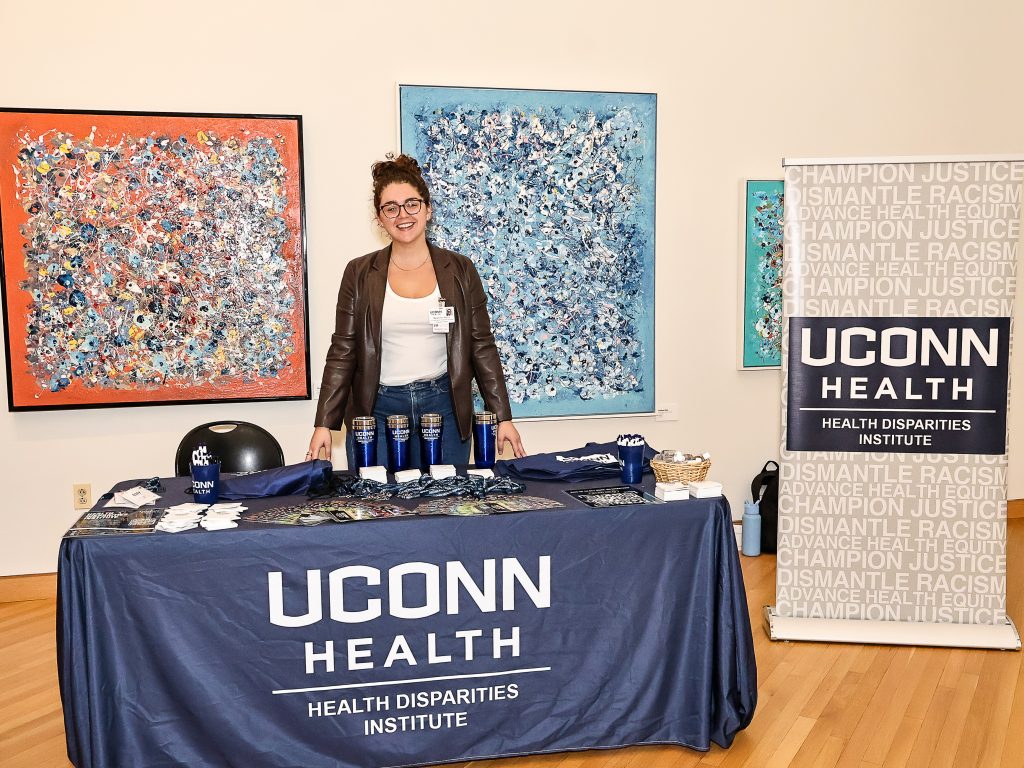
The Menopause Equity Initiative is a statewide community-led effort to reframe menopause as a public health and equity issue in Connecticut. The Initiative aims to normalize menopause as a natural stage of life, increase access to culturally responsive, evidence-based information, and drive conversations in workplaces, clinical settings, and policy spaces so women, especially women of color, are not left to navigate symptoms alone or in silence.
Dr. Linda Sprague Martinez, director of UConn HDI noted, “public health education and promotion initiatives designed in partnership with communities are critical in ensuring health messaging is meaningful. The PoP celebration provides an exceptional model for community driven public health action. However, the event was not intended to be an end point. The PoP celebration is just the beginning. HDI is committed to partnering with the provider community and medical educators to ensure they have the training and information needed to fully support advancing menopause equity and the provision of high-quality women’s health care across the life course for all. Collaboration with employers is also needed to ensure workplaces are responsive to the health needs of women at all stages of their lives.”
Power of the Pause reflects HDI’s model: build solutions with community first. By listening to lived experience in rooms like this, HDI is gathering real-world guidance to inform clinicians, employers, and lawmakers on how to better support individuals in midlife across Connecticut.
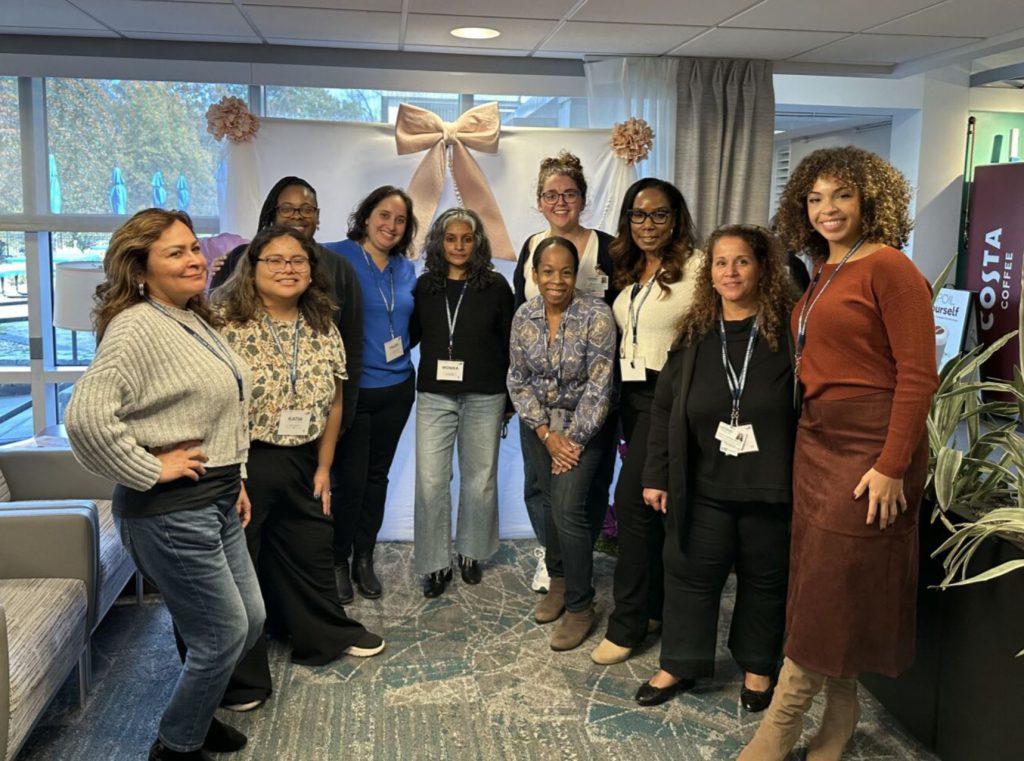
The Health Disparities Institute at UConn Health works to advance equity and improve health outcomes by addressing the root causes of health disparities. Through research, data, workforce development, and strong partnerships with communities disproportionately impacted by inequities, HDI leads efforts to create systemic change. HDI’s vision is equitable health, education, and economic opportunity for all in Connecticut.
